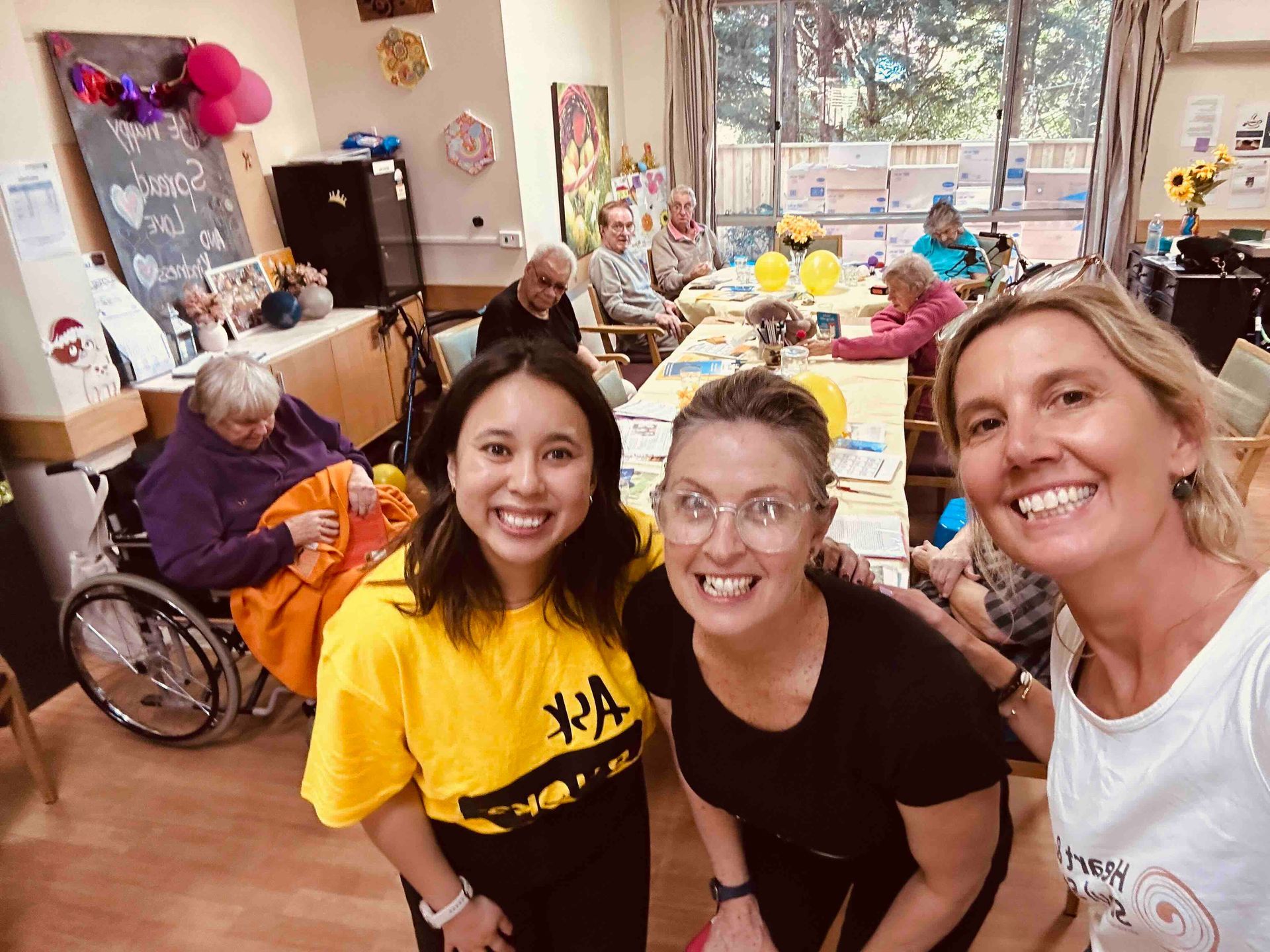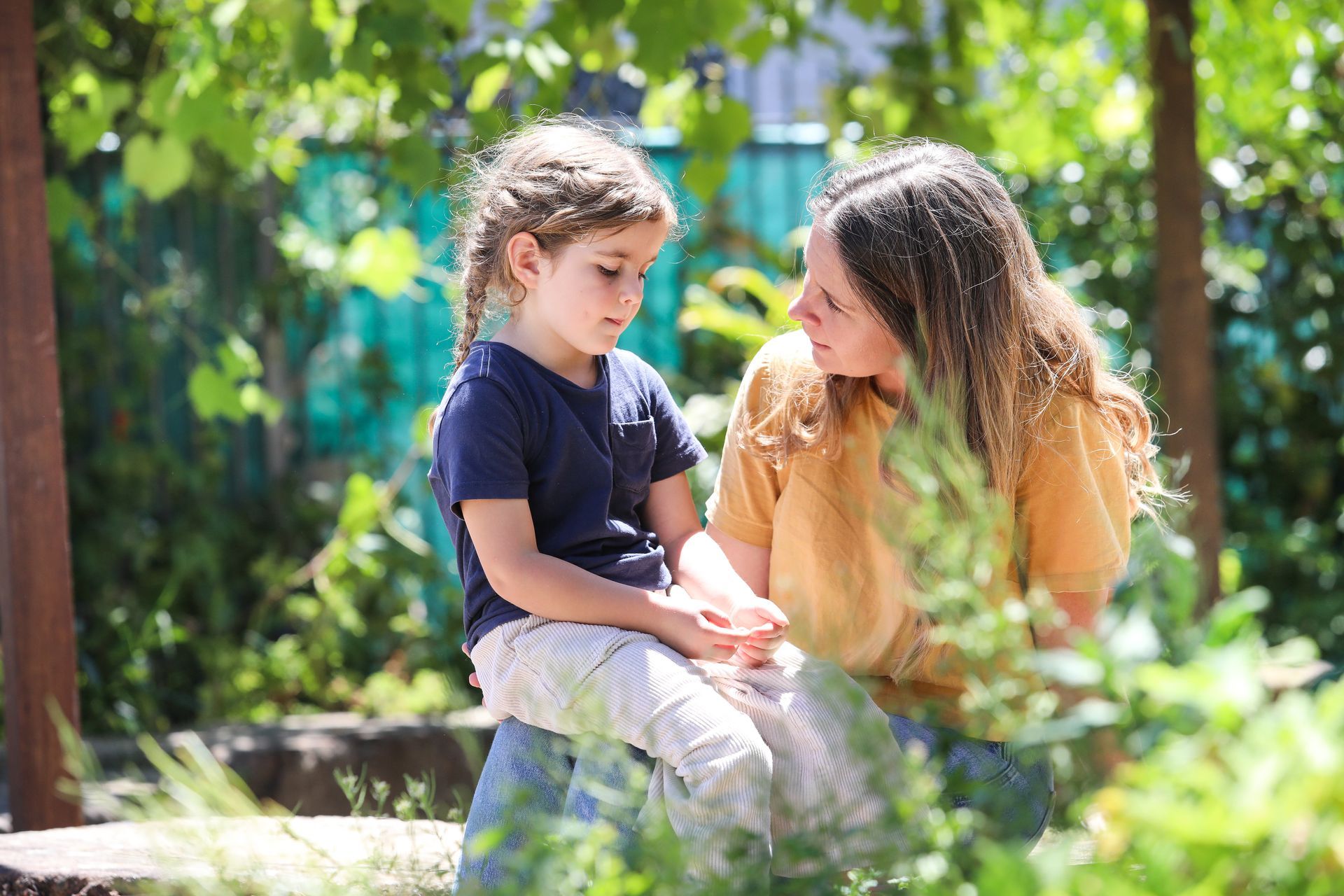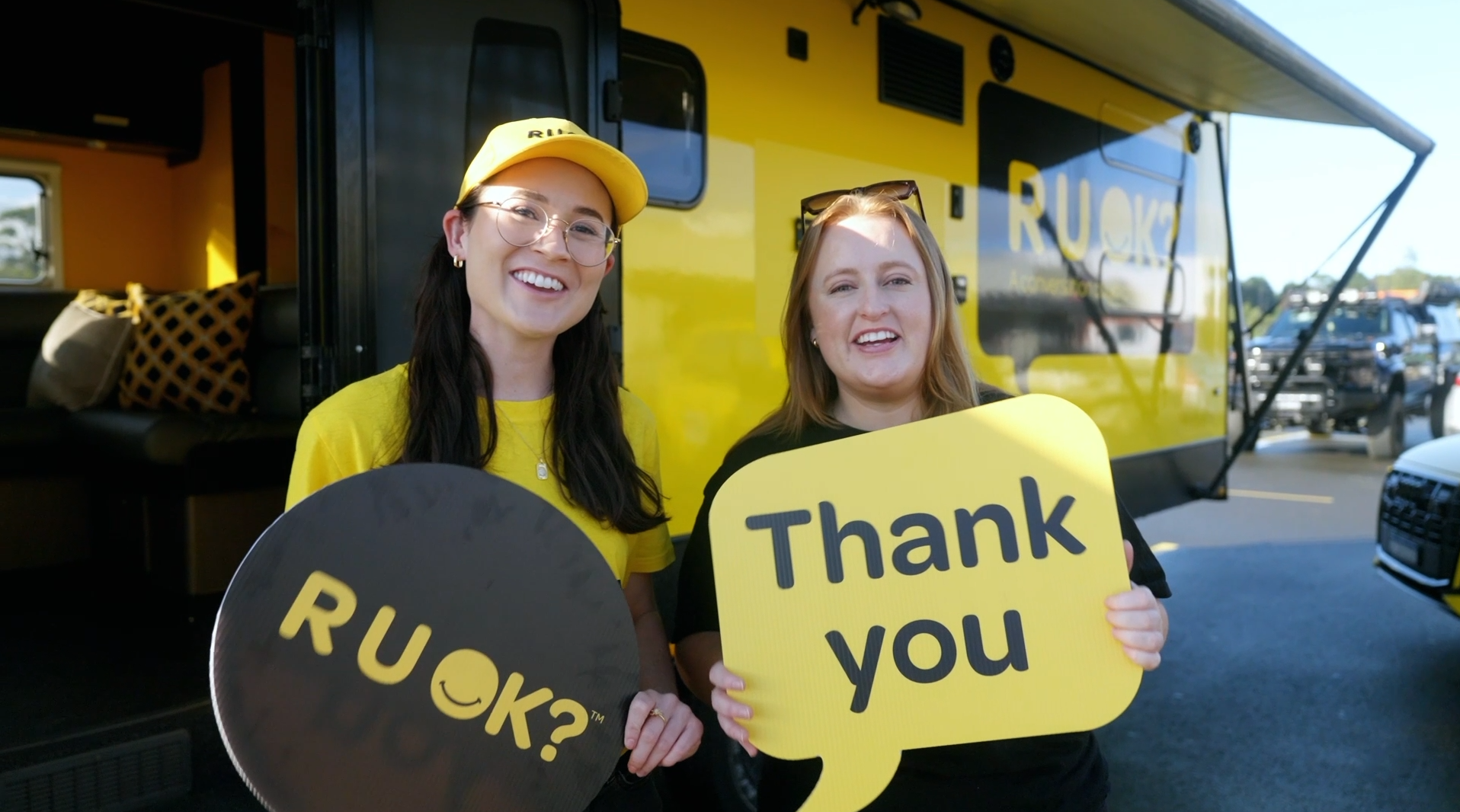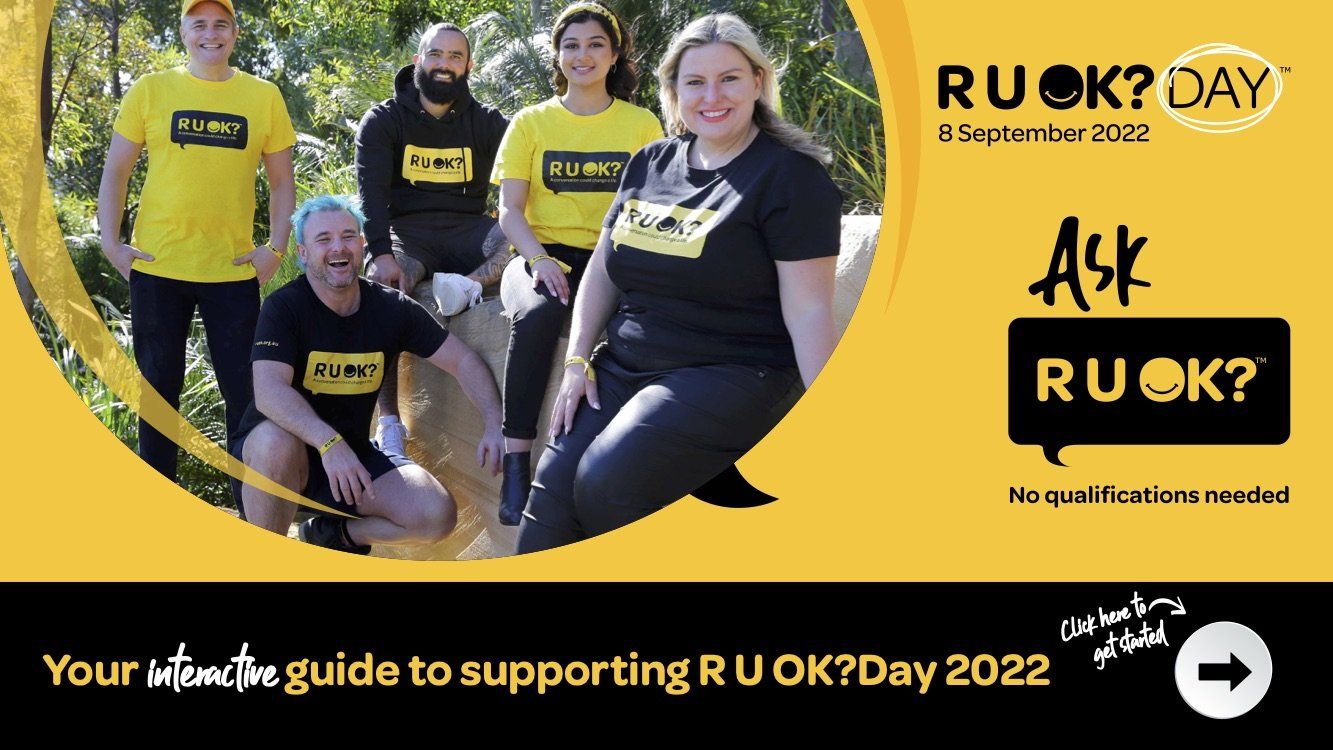You're already qualified to ask R U OK?
New R U OK? research has found that four in ten Australians feel asking someone ‘are you OK?’ is a conversation better had with an expert. Dr. Grant Blashki, a practising GP and Lead Clinical Advisor for Beyond Blue, says that's not the case and that we all can play a role in supporting those we care about.
R U OK?Day is Thursday September 8 and the message this year is: Ask R U OK? No qualifications needed.
It comes following new R U OK? research1 that found that four in ten Australians feel asking someone ‘are you OK?’ is a conversation better had with an expert.
[1] fiftyfive5 R U OK?Day Research 2022
We want everyone to know that you already have what it takes to support family, friends and colleagues and that you don’t need to be an expert to have an R U OK? conversation.
Listening and giving someone your time might be just what they need to help them through a difficult period.
Dr. Grant Blashki has been a practising GP for 25 years and is the Lead Clinical Advisor for Beyond Blue. We spoke to Dr Blashki about checking in with those we care about and why you don’t need to be an expert to ask R U OK?
“People don’t ask R U OK? because they’re worried about the answer and they won’t know how to respond if someone tells them they aren’t OK," he said. You don’t have to be a mental health expert, you’re just opening up the conversation and being there to listen."
“If someone does open up, it’s OK to say to them, ‘thanks for talking about that with me, I'm not really sure what we should do, but let's look at it together', and, ‘you know 'I'm here to help'.
“Remember, you don't have to be a psychologist, you don't have to solve someone’s problem, you don't have to jump in with your own anecdotes. Just sit back and listen.
“The evidence shows that asking people about a mental health issue, or even if they've been thinking about harming themselves, it doesn't put the idea in their mind and it doesn't make them feel worse. Most people are really quite relieved to talk to someone.”
To get involved in R U OK?Day 2022 and access resources, tips and ideas to help you drive genuine change in your workplace, school and community visit click
here.
If someone’s not ready to open up yet, that’s OK. Dr Blashki says you’ve already taken the first steps of supporting them by checking in and asking R U OK?
“You don't have to push them. You've opened the door and they might come back to you if they want to. They know that you care, they know that you're interested, and so that in itself is really valuable,” he said.
The work of health professionals is vital, and their value cannot be underestimated. But what we can all do is be connectors to professional support when it’s needed.
“If someone needs help, you could either direct them initially to Beyond Blue or Lifeline, if it's a more urgent situation,” he said.,
“People can also go to any GP and get a mental health plan. We can be that link, the person that says, 'hey, how about I book in the GP for you?', 'how about we give Beyond Blue a call?', and get things started'.”
Everyone experiences life’s ups and downs and in recent times there has been a lot to cope with. Natural disasters, the pandemic, world conflicts and cost of living increases have added additional pressure and emotional strain for many.
With so much going on, your support and care can make a real difference to someone struggling. That’s something we are all already qualified to do.
“In any one year in Australia, about two million people experience an anxiety disorder and about one million experience depression, “Dr Blashki said.
"Apart from that, there's a whole lot of people who are stressed. They don’t have a mental health condition but they're really sad about something going on in their life or really worried about something.
"If you think about your family, friends and work colleagues, you will know people who are very stressed or experience a mental health condition. Everyone should feel qualified, everyone should feel like 'this is something I can ask'.
"Your basic humanity is all you need."
If you or someone you know needs some extra support, visit our directory of national support and services here. For support at any time of day or night, call Lifeline on 13 11 14.






















